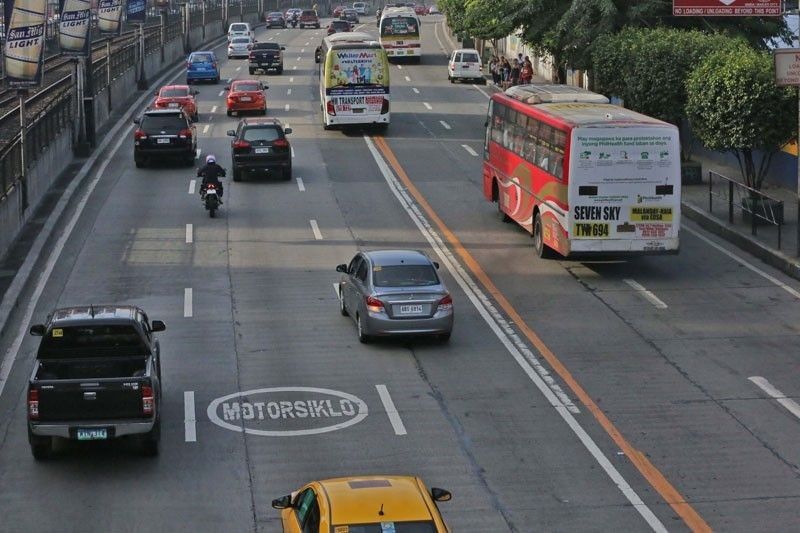Road user tax seen to go up by 300 percent

MANILA, Philippines — The road user tax the government collects from millions of motor vehicle owners could go up by as much as 300 percent under a proposed law the Department of Finance (DOF) has submitted to the House of Representatives.
The tax is in the form of higher annual vehicle registration fees paid to the Land Transportation Office (LTO). Fees vary depending on the type and weight of vehicle.
According to the LTO, there were 11.6 million vehicles registered as of last year. That number represented an increase of 1.2 million over the 10.4 million in 2017.
Under the DOF-proposed law, the road user levy would be P1.40 for next year, P1.95 for 2021, and P2.50 for 2022. The imposition is officially known as the motor vehicle user’s charge, or MVUC, under Republic Act 8794 enacted in 2000.
The DOF is proposing that the tax be based on the gross vehicle weight, plus its cargo and/or passenger carrying capacity as determined by the LTO.
Citing as example a 2014 Toyota Hilux utility vehicle, the owner paid P2,040 in road user tax last year, including the registration fee, plus P50 for stickers, P10 as contribution to the LTO “legal research fund” and P169.06 as computer fee – presumably paid to the agency’s automation service provider.
As reflected in its certificate of registration, the Hilux has a gross weight of 2,755 kilos or almost 2.8 tons, and a “net capacity” of 1,378 kilos or 1.4 tons. It is not clear if this is the cargo and/or passenger carrying capacity the DOF referred to in its proposed law.
Based alone on the Hilux’s gross weight of 2,755 kilos and using the DOF-proposed rates, the owner would pay a road tax of P3,857 next year, P5,372.25 in 2021 and P6,887.50 in 2022, excluding miscellaneous fees and the additional levy for the vehicle’s load-bearing capacity.
The DOF is suggesting that the rates be uniform for all vehicles, whether old or new.
The present rates are based on Executive Order 43, issued by the late president Corazon Aquino in 1986. It prescribed the annual registration fees motor vehicle owners paid.
The order classified vehicles as light, medium, heavy and utility vehicles, for which there were varying amounts of annual registration fees depending on the type and age of the vehicle.
The registration fee for a new car classified as light (up to 1600cc) was P1,000, and P700 for the oldest (more than five years) light vehicle.
The rates were adjusted when the MVUC law took effect: 25 percent more every year until the fees doubled in 2004. The adjustments went to four MVUC funds administered by the defunct Road Board.
Use of MVUC collections was attended by numerous irregularities.
One case involved an obscure pharmaceutical trading company in San Juan, Metro Manila. The firm bagged hundreds of millions in contracts for road repairs and supply of road signs.
In November 2009, the late senator Miriam Defensor Santiago called on the Senate to file plunder charges against Road Board officials for allegedly misusing P60.5 billion in MVUC collections, calling the misuse “apocalyptic corruption.”
Nothing came out of her call. No plunder or even graft charges were filed against any Road Board official until Congress, upon President Duterte’s request, abolished the agency in April last year due to persistent anomalies.
The MVUC served as an additional source of pork barrel funds for members of Congress.
- Latest
- Trending






























